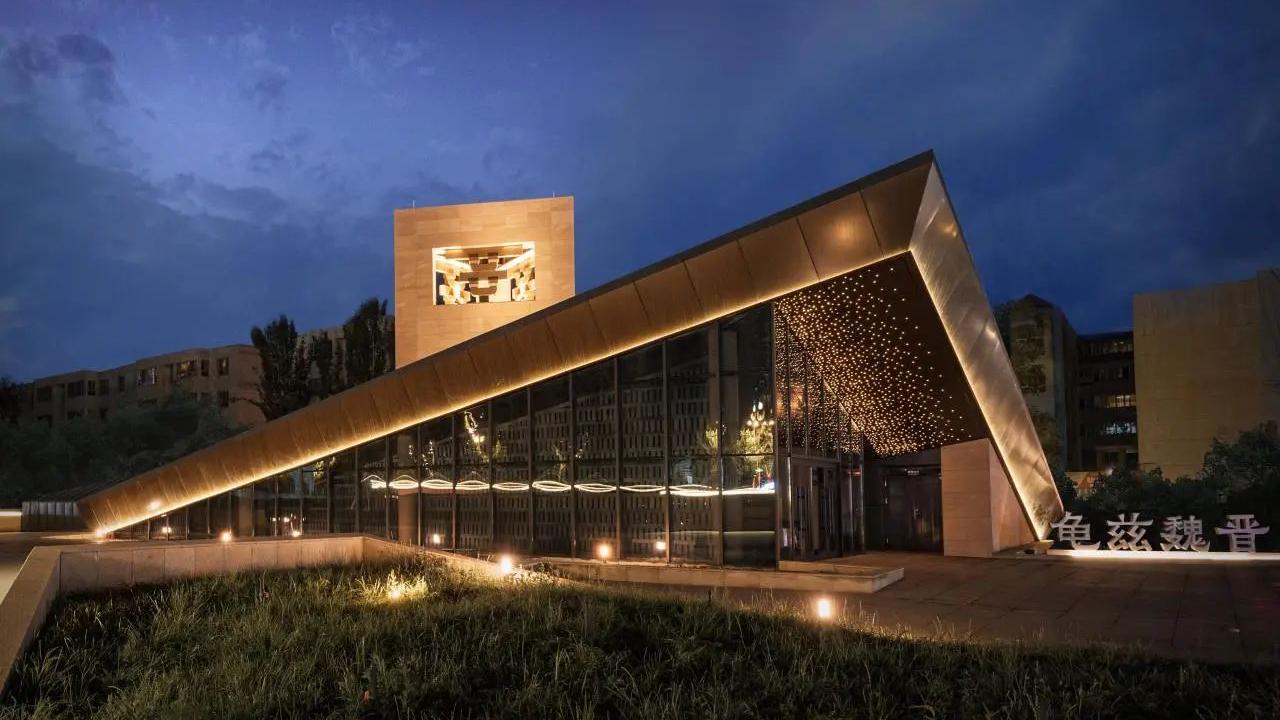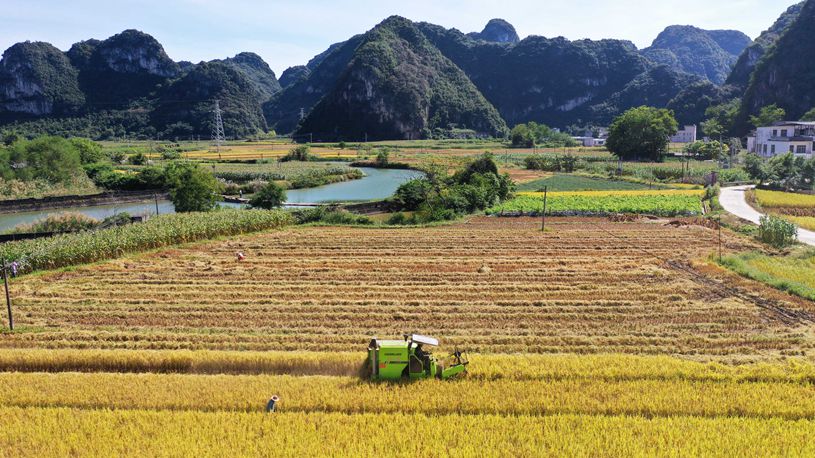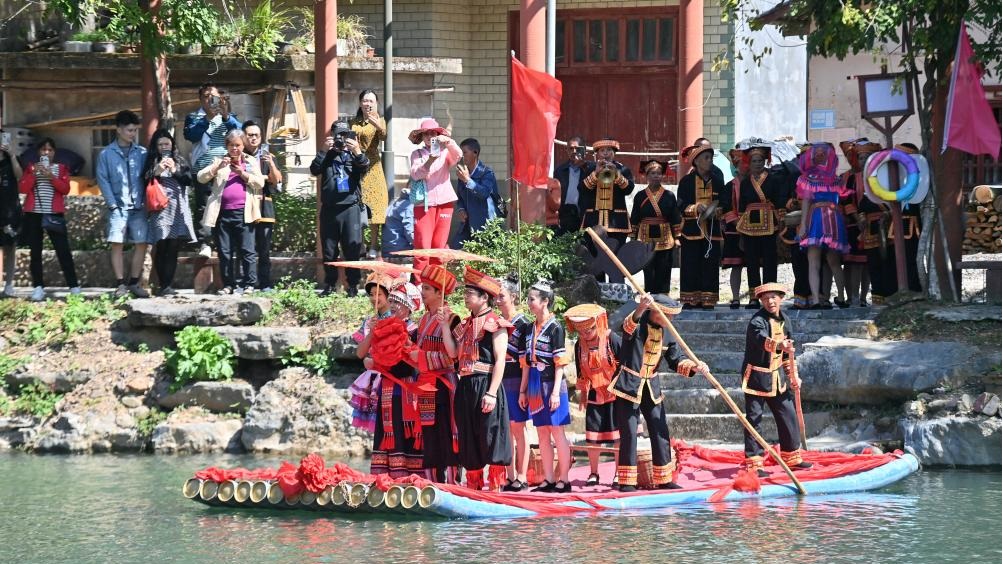Chinese Malaysian transforms 'barren land' into 'green source of income' in NW China's Ningxia
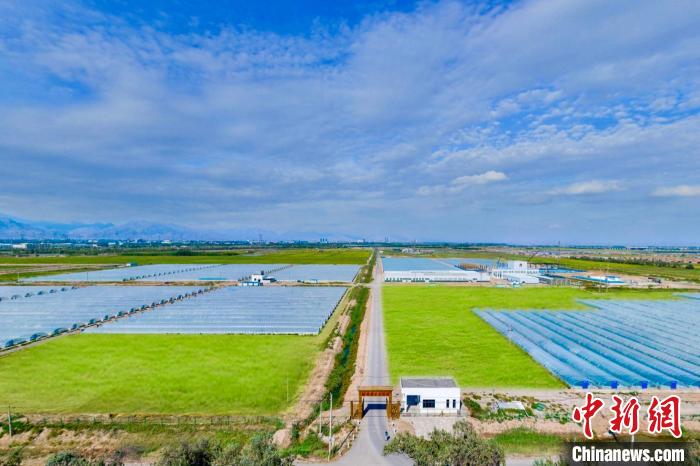
Photo shows the spirulina cultivation base operated by a Malaysian-funded enterprise, located at the foot of the Helan Mountains in northwest China's Ningxia Hui Autonomous Region. (Photo courtesy of Teo Pei Shin, chairwoman of the company)
Nearly 10 years ago, Chinese Malaysian Teo Pei Shin, an employee of a Malaysian food company, and Lim Siow Jin, founder of the company, were excited at the sight of barren saline-alkali land at the foot of the Helan Mountains in northwest China's Ningxia Hui Autonomous Region.
The happy encounter in 2015, when Teo and Lim came to Ningxia for the second China-Arab States Expo, led to tremendous changes to the saline-alkali land that used to be a big headache to local farmers.
"Our company specializes in the production of spirulina and its deep-processed products. Spirulina thrives in high temperatures and is salt-alkali resistant, making saline-alkali land the most suitable environment for its growth. The temperature and humidity here are also ideal for another one of our products, lion's mane mushrooms," Teo explained, adding that upon returning to Malaysia, Lim began preparing to establish a factory in Ningxia.
By the end of 2015, Lim's company invested 400 million yuan ($56.31 million) to register a new company in Shizuishan city, downstream of the irrigation area of the Yellow River, in Ningxia. Teo was appointed as the chairwoman, embarking on her journey of "chasing dreams in the west."
Located in the northwestern inland of China, Ningxia benefits from the Yellow River for convenient irrigation. However, due to arid conditions and low rainfall, the region has always been plagued by soil salinization.
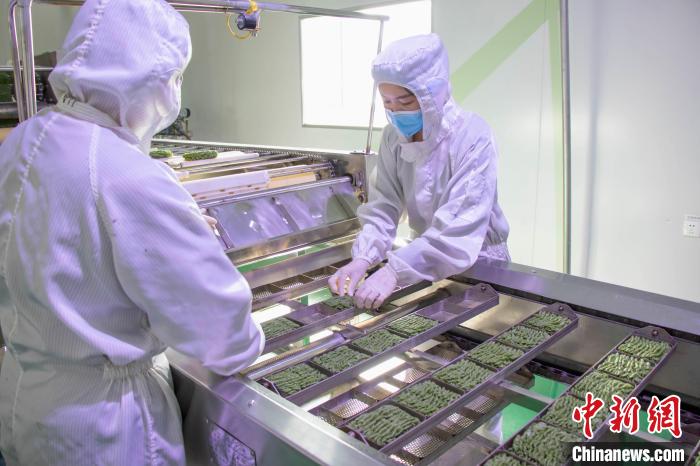
Photo shows a spirulina processing and production line of a Malaysian-funded enterprise based in northwest China's Ningxia Hui Autonomous Region. (Photo courtesy of Teo Pei Shin, chairwoman of the company)
Data show that there are nearly 2.5 million mu (about 166,666.67 hectares) of land with varying degrees of salinization in Ningxia. How to improve and utilize saline-alkali land has become the most pressing issue for local farmers.
Upon arriving in Ningxia, Teo obtained the land-use rights of over 1,000 mu of saline-alkali land from farmers in Xinghai township, Dawukou district of Shizuishan city, and built over 250 intelligent temperature-controlled greenhouses to grow spirulina.
"We have achieved large-scale artificial cultivation of spirulina here, turning the previously underutilized saline-alkali land into fertile ground for spirulina growth and reproduction," Teo told Chinanews.com reporters.
Today, this "green ocean" flourishing with spirulina enables over 300 villagers to work near their homes, becoming a "green source of income" for local villagers.
As the planted spirulina matured, the company also built a 68,000-square-meter factory to operate multiple deep-processing production lines.
So far, the company has sold products such as spirulina tablets, instant noodles, and lion's mane mushroom coffee to 25 countries and regions including Australia, Bolivia, Hungary, and the Philippines.
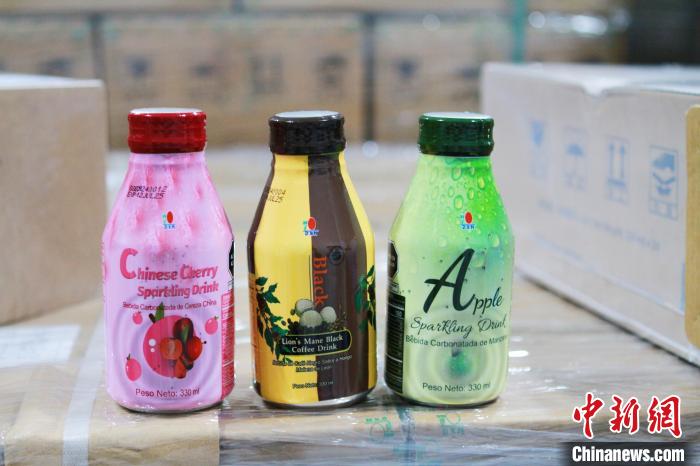
Photo shows sparkling drinks exported to Peru by a Malaysian-funded enterprise based in northwest China's Ningxia Hui Autonomous Region. (Photo courtesy of Teo Pei Shin, chairwoman of the company)
"In Ningxia, we have expanded from developing export markets in Belt and Road Initiative (BRI) partner countries to achieving a global presence, proving that our initial investment in Ningxia was the right choice," Teo told reporters, noting that her company has now established an integrated industry chain encompassing biological research and development, cultivation, processing, production, and sales.
Alongside the growing output value of her company, Teo has also enjoyed a comfortable life during her nine years of working and living in Ningxia. In particular, the highly efficient and considerate public services, as well as the delicious local food, have contributed significantly to her enjoyable experience in Ningxia.
As she transformed the local saline-alkali land, Ningxia continued to surprise her with its diverse resources and immense potential.
Seeing bright prospects for Ningxia's extensively grown corn and rice, renowned goji berries, and high-sugar apples with unique flavors, Teo has begun exploring the path of integrated development between her company and characteristic agricultural products in Ningxia in the past two years.
Today, many of her ideas have become reality.
In May this year, products developed by Teo's company, such as black coffee with lion's mane mushrooms, coconut latte with lion's mane mushrooms, spirulina coffee, and sparkling drinks with apple juice, were officially exported to Peru, adding a new member to Ningxia's "international circle of friends."
Moreover, Teo has also established an integrated product exhibition and experience center in Longquan village, known as the "first village at the foot of the Helan Mountains." The center not only attracts tourists on vacation, but also allows them to experience the deep friendship between China and Malaysia.
"I will continue to stay in Ningxia, and our company will increase investment in China. I hope to ride the 'high-speed train' of the Belt and Road Initiative to expand the reach of our products to more nations," Teo said. She is full of hope for the future.
Photos
Related Stories
Copyright © 2024 People's Daily Online. All Rights Reserved.







